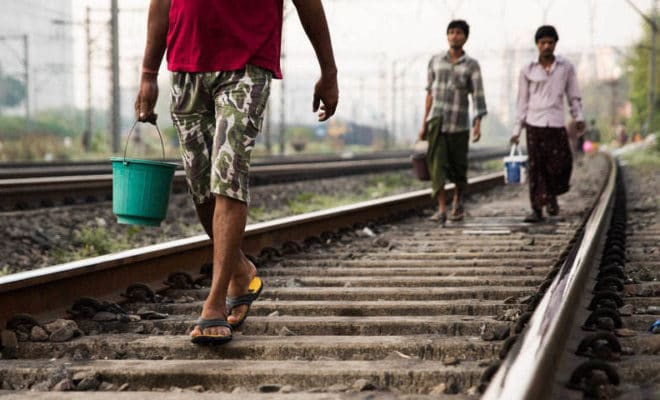Life
UN Expert’s Report on Swachh Bharat Mission is Inaccurate, Biased, Says Indian Govt

Representational Image
Flickr
Indian government says UN special rapporteur Leo Heller's report on sanitation drive is full of sweeping generalizations.
The Indian government, which invited UN special rapporteur Leo Heller to monitor its Swachh Bharat Mission over the course of two weeks, was left rattled by the nature of his observations. Heller urged the government to not let the construction of toilets under the initiative overshadow the focus on drinking water provision for all.
Heller, who highlighted several human rights concerns in his subsequent preliminary report, also said that the Indian government should not involuntarily contribute to violating fundamental rights of others, such as the specific caste groups engaged in manual scavenging, or the marginalized communities such as ethnic minorities and people living in remote rural areas.
The Swachh Bharat program to eliminate open defecation, he said, is being marred by accusations of use of strong-arm tactics against those defecating in the open. The report also shows how the government has incorrectly labelled places as open defecation-free. It is also said to have made inaccurate claims about toilets for schoolgirls.
“Everywhere I went, I saw the logo of the Clean India Mission – Gandhi’s glasses. In its third year of implementation, now is a critical time to replace the lens of those glasses with the human rights lens,” Heller said on Nov. 10 while unveiling his report.
Taking a strong exception to his statements, the government released a statement shortly after, saying that the his words about Gandhi’s glasses were “insensitive”. The statement read: “The world knows that the Mahatma was the foremost proponent of human rights, including for sanitation, his unique and special focus. Gandhiji’s glasses, the unique logo of the Swachh Bharat Mission, epitomize core human rights principles.”
The statement added: “The Government has the highest commitment to human rights in general and particularly in the water supply and sanitation sectors and strongly rejects the claims in the UNSR’s report and press statements.”
The Swachh Bharat mission, they defended, fully “conforms to the Human Rights Criteria and Principles (as established by the UN system).”
The statement went on to call Heller’s preliminary “rambling” report full of “inaccuracies, sweeping generalizations and biases.”
While the government has set Oct. 2 , 2019 as the deadline to make India “open defecation free,” with at least 53 million toilets built over the last three years, Heller believes that eliminating open defecation is not about building latrines. It “requires adequate methods for behavior change, and sufficient water supply is a pre-requisite for the sustainable and safe use of adequate, low-cost latrines,” he said.
The right to water and sanitation, he believed, should be addressed as package rights. In his visit from Oct. 27 to Nov. 10 to India, Heller met central, state and local government officials and organizations in Delhi, Lucknow, Mumbai, Kolkata and Imphal. He will submit a full report of his findings to the Human Rights Council in September 2018.




You must be logged in to post a comment Login